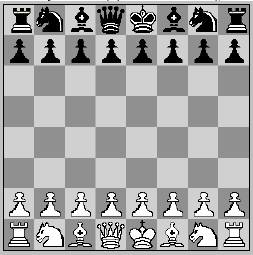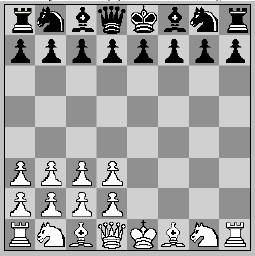Uncommon Ground has a brief note today titled “Natural Law and Intelligent Design,” in which the author plugs a longer piece by Matthew Yglesias titled “Nature and Super-Nature” (go here). This piece is rife with misconceptions about the nature of science and the status of methodological materialism as a normative rule for science. Since these questions are very much at the forefront of current legal and educational battles, let me weigh in here. The key is to understand that the nature-supernature distinction poses a false dilemma. There is a third option.
Yglesias tacitly assumes a normative principle for science known as methodological naturalism or methodological materialism. Moreover, for him ID’s rejection of this principle entails that ID must be committed to a form of supernaturalism. This, in turn, makes ID for him a religious belief.
The impression Yglesias leaves is that whereas conventional evolutionary theory is engaged in the hard work of real science, intelligent design appeals to the supernatural and thus gives up on science, substituting magic for “natural explanations.†But what are “natural explanations� Indeed, what constitutes nature remains very much an open question. If one reviews the ID literature, one finds that early on there were quite a few references to “the supernatural,†but that by 2000 (especially with Baylor’s Nature of Nature conference, which I helped organize), references to the supernatural largely disappear. The reason for this is that the very term “supernatural†concedes to materialists like Yglesias precisely the point at issue, namely, what is nature like and what are the causal powers by which nature operates.
Yglesias wants to say that nature operates only by natural causes and is explained scientifically only through natural explanations. But what does Yglesias mean by nature? In a previous blog entry at ID the Future (go here), I briefly criticized methodological materialism. There I cited Eugenie Scott as follows:
Most scientists today require that science be carried out according to the rule of methodological materialism: to explain the natural world scientifically, scientists must restrict themselves only to material causes (to matter, energy, and their interaction). There is a practical reason for this restriction: it works. By continuing to seek natural explanations for how the world works, we have been able to find them. If supernatural explanations are allowed, they will discourageâ€â€or at least delayâ€â€the discovery of natural explanations, and we will understand less about the universe. [For context go here.]
In response, I noted that
There are two problems with this [Eugenie Scott’s] statement. First, if methodological materialism is merely a working hypothesis that scientists employ because “it works,†then scientists are free to discard it when it no longer works. Design theorists contend that for adequately explaining biological complexity, methodological materialism fails and rightly needs to be discarded. Second, and more significantly, in defining science as the search for natural explanations, Scott presupposes precisely what must be demonstrated. If, by natural explanations, Scott simply means explanations that explain what is happening in nature, there would be no problem, and intelligent design would constitute a perfectly good natural explanation of biological complexity. But that is not what she means.
By natural explanations, Scott means explanations that resort only to material causesâ€â€as she puts it, to “matter, energy, and their interaction.†But that is precisely the point at issue, namely, whether nature operates exclusively by such causes. If nature contains a richer set of causes than purely material causes, then intelligent design is a live possibility and methodological materialism will misread physical reality. Note, also, that to contrast natural explanations with supernatural explanations further obscures this crucial point. Supernatural explanations typically denote explanations that invoke miracles and cannot be understood scientifically. But explanations that call upon intelligent causes require no miracles and give no evidence of being reducible to Scott’s trio of “matter, energy, and their interaction.†Indeed, design theorists argue that intelligent causation is perfectly natural provided that nature is understood aright.
Because so much of this debate over intelligent design hinges on the nature of nature, I need to expand on these remarks. Nature, as conceived by Scott, Yglesias, and many other critics opposed to ID, consists of material entities ruled by fixed laws of interaction, often referred to as “natural laws.†These laws can be deterministic or nondeterministic, which is why some scientists refer to nature as being governed by “chance and necessity.†(Cf. Jacques Monod’s book by that title.) Obviously, these laws of interaction rule out any form of intelligent agency acting real-time within nature. They operate autonomously and automatically: given certain material entities with certain energetic properties in certain spatio-temporal relationships, these entities will behave in certain prescribed ways.
An inescapable question now arises: How do we know that nature is in fact a set of material entities ruled by fixed laws of interaction? In particular, how do we know that everything that happens in nature can be accounted for in terms of antecedent material conditions and the processes that act on them characterized by these laws of interaction? Once the question is posed this way, it becomes an open question whether nature comprises a set of material entities ruled by fixed laws of interaction. In fact, it becomes a live possibility that nature, so conceived, is radically incomplete. In my book No Free Lunch I summarize what’s at issue here as follows:
In arguing that naturalistic explanations are incomplete or, equivalently, that natural causes cannot account for all the features of the natural world, I am placing natural causes in contradistinction to intelligent causes. The scientific community has itself drawn this distinction in its use of these twin categories of causation. Thus, in the quote earlier by Francisco Ayala, “Darwin’s greatest accomplishment [was] to show that the directive organization of living beings can be explained as the result of a natural process, natural selection, without any need to resort to a Creator or other external agent.†Natural causes, as the scientific community understands them, are causes that operate according to deterministic and nondeterministic laws and that can be characterized in terms of chance, necessity, or their combination (cf. Jacques Monod’s Chance and Necessity). To be sure, if one is more liberal about what one means by natural causes and includes among natural causes telic processes that are not reducible to chance and necessity (as the ancient Stoics did by endowing nature with immanent teleology), then my claim that natural causes are incomplete dissolves. But that is not how the scientific community by and large understands natural causes. (pp. xiii-xiv)
The point to appreciate here is that Yglesias and his compadres, in assuming methodological materialism, have assumed precisely the point at issue. Specifically, to say, as Yglesias suggests, that science is the search for natural explanations of natural phenomena is to presuppose that such explanations exist for all natural phenomena. But how is this claim to be justified? Rather than justify it, Yglesias begs the question. To see that Yglesias has indeed made a question-begging assumption here, consider the following analogy drawn from the game of chess. In chess, there are initially thirty-two pieces arranged on an eight-by-eight chessboard as follows:

Moreover, chess operates by certain fixed rules. For instance, bishops move diagonally, pawns only move forward and only take one square diagonally, etc. In this analogy, the chess pieces in their initial configuration correspond to the material entities that for Yglesias constitute nature and the rules of chess correspond to the laws of interaction that for Yglesias govern nature.
Given the initial position of chess pieces and the rules of the game, we can ask whether the following position is possible:

It turns out that it is not. There is no way to get from the first position to the second by the rules of chess.
So too, intelligent design purports to show that there exist configurations of material entities (e.g., bacterial flagella, protein synthesis mechanisms, and complex organ systems) that cannot be adequately explained in terms of antecedent material conditions together with processes characterized by fixed laws that act on them. Granted, chess constitutes a toy example whereas the biological examples ID theorists investigate are far more complicated. Moreover, whereas chess operates according to precise mathematical rules, the laws of interaction associated with material entities are probabilistic, so the obstacles to producing complex biological configurations of material entities are not logical impossibilities but empirical improbabilities. But the point of the analogy still holds. Whenever you have a theory about process — how one state is supposed to progress into another — it is perfectly legitimate to ask whether the process in question is capable of accounting for the final state in terms of the initial state.
It follows that the charge of supernaturalism against intelligent design cannot be sustained. Indeed, to say that rejecting naturalism entails accepting supernaturalism holds only if nature is defined as a closed system of material entities ruled by unbroken laws of material interaction. But, as we have just seen, this begs the question. Consider the following riddle: If one calls a tail a leg, how many legs does a dog have? The correct answer is: Four — calling a tail a leg doesn’t make it a leg.
Likewise, defining nature as a closed system of material entities operating by fixed laws of interaction doesn’t make it so. Nature is what nature is, and prescribing methodological materialism as a normative principle for science (as so many critics of ID do) does nothing to change that. ID theorists argue that methodological materialism fundamentally distorts our understanding of nature. For the purposes of this case, the crucial thing is not whether they are right but whether they might be right. Given that they might be right, methodological materialism cannot be taken as a defining feature of science, much less should it be held dogmatically. To make methodological materialism a defining feature of science commits the premodern sin of forcing nature into a priori categories rather than allowing nature to speak for itself.
To sum up, Yglesias and company present us with a false dilemma: either science must be limited to “natural explanations†(taken in a highly tendentious sense) or it must embrace “supernatural explanations,†by which is meant magic. But there is a third possibility: neither matter nor magic but mind. ID theorists are not willing to concede the materialist claim that a designing intelligence (mind) interacting with matter is “supernatural.†Indeed, investigations by ID theorists are beginning to demonstrate that this interaction is perfectly natural — that nature cannot be properly understood apart from the activity of a designing intelligence.